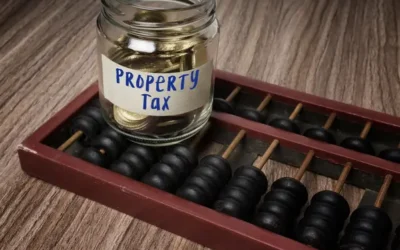In Texas, Veterans with a 100% disability rating are eligible for a significant financial benefit: exemption from property taxes on their primary residence. This exemption provides substantial relief, as property taxes in Texas are among the highest in the country. For many Veterans and their families, this tax relief can result in thousands of dollars saved annually.
This article delves into how the property tax exemption works for Veterans with a 100% disability rating, the current housing market, and additional ways to maximize savings. It also includes relevant statistics, helpful resources, and expert advice.
Understanding the Property Tax Exemption for Disabled Veterans
Veterans with a 100% disability rating can qualify for a total exemption from property taxes on their primary residence. This means they are exempt from paying any property taxes, regardless of the home’s value. Here are the basic qualifications:
- Veteran Status: Must be a Veteran of the U.S. armed forces.
- Disability Rating: A 100% permanent and total disability rating, as determined by the Department of Veterans Affairs (VA).
- Primary Residence: The exemption applies only to the Veteran’s primary home. Other properties owned by the Veteran are not eligible.
The Impact of Property Tax Exemption on Homeownership
Texas has high property tax rates, with an average effective rate of around 1.8%. This means that for a home valued at $300,000, the property tax bill could be approximately $5,400 annually. For Veterans with a 100% disability rating, this exemption can eliminate that cost entirely.
Here are some financial statistics to highlight the importance of this exemption:
- Median Home Value in Texas (2026): $315,000
- Average Property Tax Rate: 1.8%
- Annual Property Tax Savings for a 100% Disabled Veteran: Around $5,670 for a $315,000 home
States Offering Property Tax Exemptions for Disabled Veterans
These states offer property tax exemptions or reductions for disabled Veterans.
- Texas: Full exemption for Veterans with a 100% disability rating.
- Florida: Complete exemption for Veterans with a 100% disability rating due to service-connected disabilities.
- California: Exemptions vary by county, with up to $250,000 of home value exempt for Veterans with a 100% disability.
- Alabama: Full exemption for Veterans who are permanently and totally disabled.
- Georgia: Full exemption for disabled Veterans, up to $85,645 of the property’s value for those with a 100% service-connected disability.
- Missouri: Exemptions of up to $1,100 for former POWs with a 100% disability rating.
- New York: Offers a sliding scale exemption based on income, for Veterans with service-related disabilities.
- New Jersey: Full exemption for Veterans who are 100% disabled and honorably discharged.
Each state has specific requirements and varying levels of exemptions, and it’s essential to check with the local tax authority for details.
Expert Insights
“Veterans with a 100% disability rating are some of the most deserving of this benefit,” says John Martinez, a mortgage expert at Lone Star Mortgage Advisors. “The property tax exemption can make homeownership much more accessible and affordable, especially in a high-property-tax state like Texas.”
Additionally, experts encourage Veterans to explore other local and federal benefits, such as VA home loans, which offer no down payment and competitive interest rates.
Housing Market Trends in Texas for Disabled Veterans
As of 2026, the housing market in Texas continues to experience strong demand, driven by a growing population and robust job growth. Cities like Austin, Dallas, and Houston remain popular, and home prices in these areas are still climbing. While prices have moderated compared to the heights of the pandemic-driven housing boom, they remain high.
For disabled Veterans, the property tax exemption provides a key financial advantage. It allows them to consider homes in higher-priced areas, knowing they won’t be burdened by high annual property taxes.
Key Texas Housing Market Statistics (2026)
- Median Home Price: $315,000
- Year-over-Year Price Increase: 4.2%
- Average Days on Market: 45 days
How to Apply for the Property Tax Exemption
Applying for the property tax exemption is straightforward. Veterans should follow these steps:
- Obtain the VA Disability Rating Letter: This letter must confirm the Veteran’s 100% disability rating.
- Complete the Application for Property Tax Exemption: The form is available from the local appraisal district or online.
- Submit the Application: Send the completed form, along with proof of disability, to the appraisal district in the county where the home is located.
For more information, Veterans can visit the Texas Comptroller’s Property Tax Assistance Division or contact their county appraisal office.
Additional Considerations for Disabled Veterans in Texas
While the 100% disability rating provides the full property tax exemption, other Veterans with lower disability ratings may qualify for partial exemptions. For example:
- Veterans with a 70-99% disability rating are eligible for an exemption of $12,000.
- Veterans with a 50-69% disability rating can receive an exemption of $10,000.
- Those with a 10-49% disability rating are eligible for an exemption of $5,000.
Table 1: Property Tax Exemption Amounts by Disability Rating
| Disability Rating | Exemption Amount |
|---|---|
| 100% | Full exemption |
| 70-99% | $12,000 |
| 50-69% | $10,000 |
| 10-49% | $5,000 |
Can a Surviving Spouse Claim the Exemption?
Yes, the surviving spouse of a Veteran with a 100% disability rating may also qualify for the property tax exemption. The surviving spouse must continue to occupy the home as their primary residence and must not remarry. This benefit provides lasting financial relief to military families.
Other Financial Benefits for Disabled Veterans in Texas
In addition to the property tax exemption, Veterans with a 100% disability rating may qualify for other financial benefits, including:
- VA Loan Benefits: Veterans with 100% disability can access VA home loans, which offer no down payment, no private mortgage insurance, and competitive interest rates. Learn more about VA home loan benefits here.
- Disabled Veterans’ Homestead Exemption: In some counties, additional exemptions or tax breaks are available for Veterans beyond the standard state-level exemption.
- Vehicle Registration: Texas offers free vehicle registration for Veterans with a 100% disability rating.
Table 2: Additional Benefits for Veterans with a 100% Disability Rating
| Benefit | Details |
|---|---|
| VA Loan | No down payment, no PMI, competitive rates |
| Disabled Veterans’ Homestead Exemption | Additional local tax exemptions may apply |
| Vehicle Registration | Free vehicle registration |
Key FAQs About Property Tax Exemption for Veterans with a Disability Rating in Texas
Do Veterans need to reapply for the exemption each year? Once a Veteran qualifies for the exemption, they generally do not need to reapply unless there is a change in property ownership or disability status.
Can this exemption apply to rental or investment properties? No, the exemption only applies to the Veteran’s primary residence.
Is this exemption available in all Texas counties? Yes, this is a statewide benefit available to all qualified Veterans, regardless of their location within Texas.
Does the exemption transfer if I move to another home? Yes, the exemption can be transferred to a new primary residence. You must reapply with the local appraisal district in the new county.
What if I have a disability rating less than 100%? Veterans with a disability rating lower than 100% may still qualify for a partial exemption.
How does the property tax exemption impact refinancing? The property tax exemption remains in place as long as the Veteran continues to use the home as their primary residence, even after refinancing.
Can I use the property tax exemption with other home-related benefits? Yes, you can combine the property tax exemption with VA loans and other housing benefits available to Veterans.
What happens if I inherit a home from a 100% disabled Veteran? If you are the surviving spouse and meet the eligibility requirements, you may continue to claim the property tax exemption.






